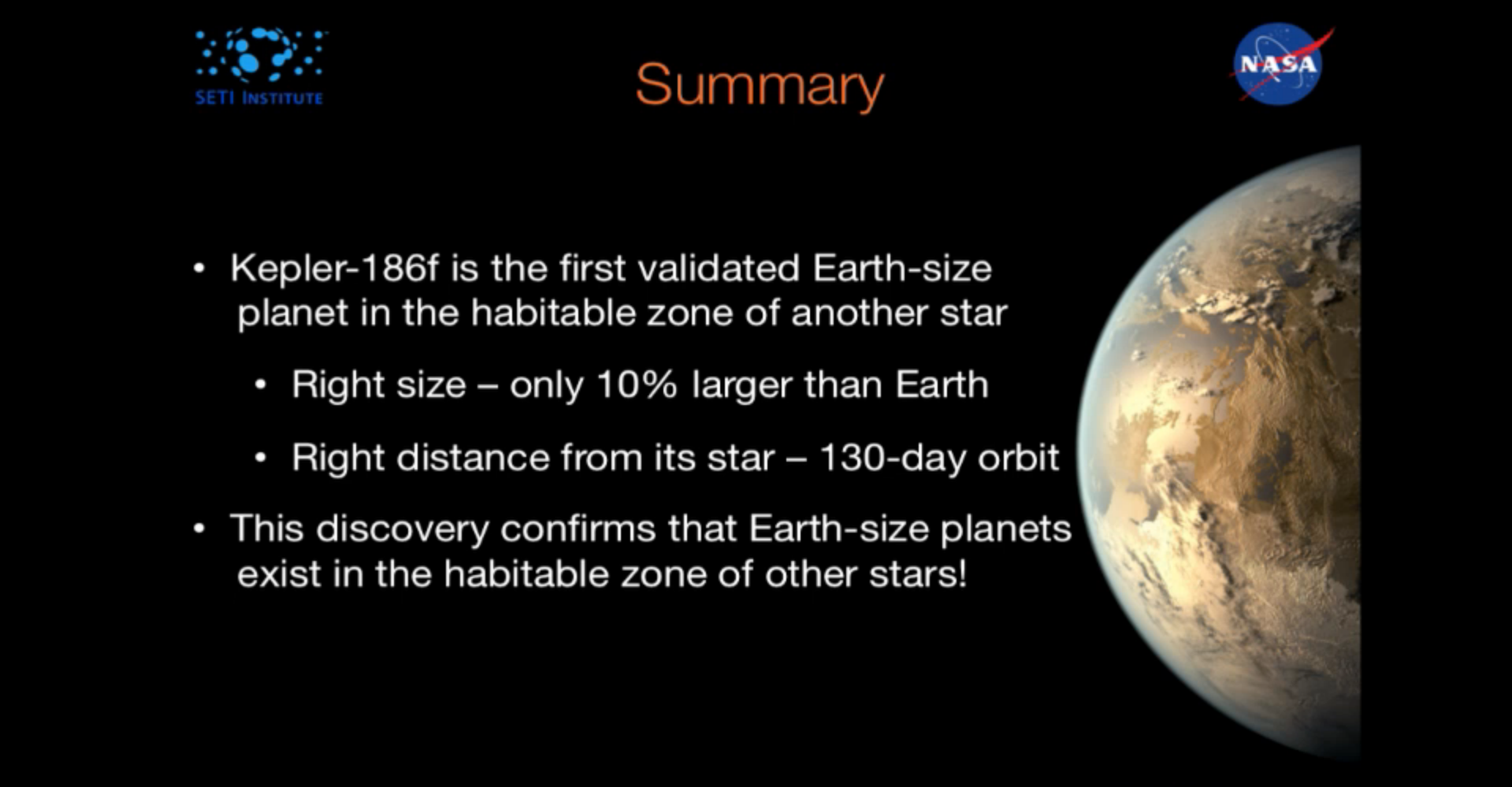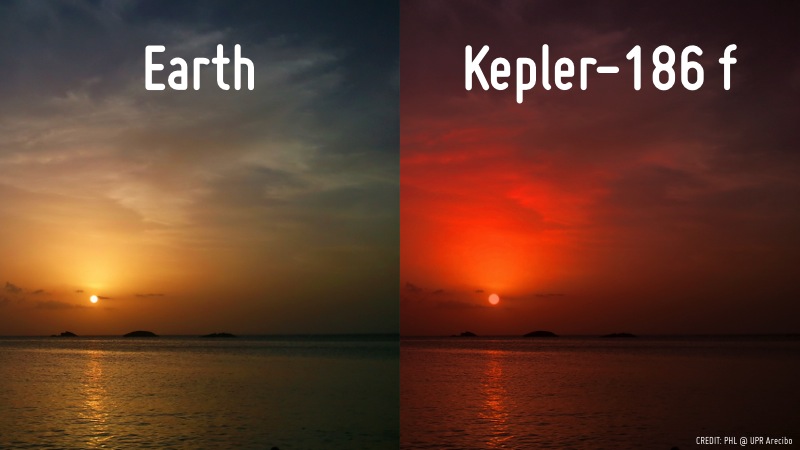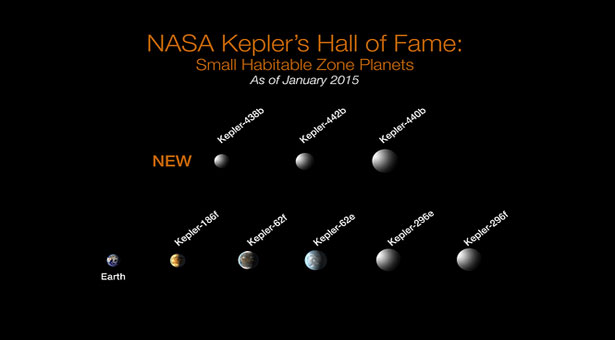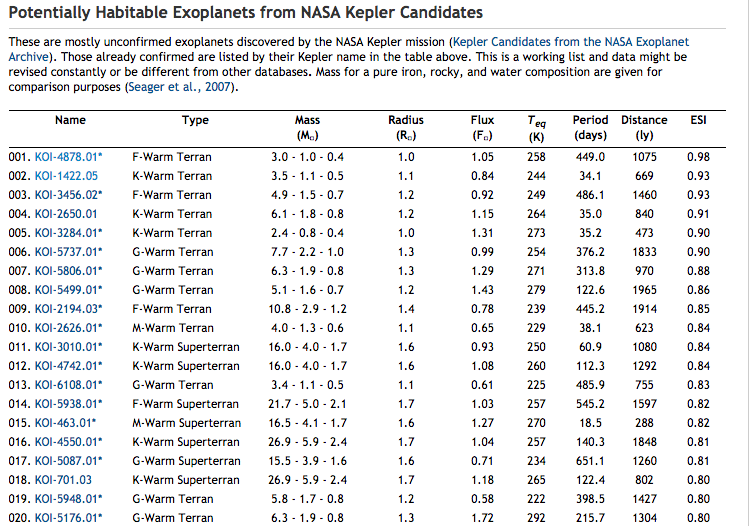It looks like you're using an Ad Blocker.
Please white-list or disable AboveTopSecret.com in your ad-blocking tool.
Thank you.
Some features of ATS will be disabled while you continue to use an ad-blocker.
share:
Hi guys,
I've been very busy all week due to work. If you've followed my threads in the Space Exploration forum over the years you'll have seen I've posted quite a few things on "Earthlike" exoplanets.
I'm a student a UW who is studying astronomy/astrophysics/astrobiology and my main area of interest is Exoplanets. Some of the cutting-edge research into Earthlike exoplanets is done here by people I know or have interact with.
I read a lot of scientific papers as well.
So....this announcement?
It most likely has to do with the confirmation of one or several Earth sized exoplanets orbiting in the habitable zone of G-class star like our Sun.
This was the "holy grail" and raison d'etre of NASA's Kepler Mission (which continues today as an astrophysics mission called 'K2').
There have already been Earth sized exoplanets detected in the habitable zones of lower mass stars (red dwarfs, smaller and cooler than our Sun). These planets must orbit their star much closer to be in that "not too hot, not too cold" region called the habitable zone because red dwarfs as I mentioned are cooler and less luminous than our Sun.
As a result there is much debate in the exoplanet community over whether any of these planet are actually Earthlike because in most cases they will be tidally locked like our moon, which means one side will always face the star the other side alway face away from it. They would have a permanent day and permanent night side.
The first Earth sized planet found in the habitable zone of a star was Kepler-186f which orbits one of these small red stars. For that reason, at the time it was announced it was described as an "Earth Cousin" not an Earth Twin:


Potentially similar to Earth but not quite an Earth Analog or Earth Twin...
However the good news is Earth Twins orbiting stars more like out Sun are out there and several of them remained unconfirmed in the Kepler data.
Kepler planet confirmations are announced about every 6-7 months. The most recent announcement was back at the January AAS (American Astronomical Society) meeting here in Seattle in which I attended (Fig 1).
Several candidates on the list below (Fig.2) were confirmed earlier this year at that meeting however the most promising ones (ones with a high Earth Similarity Index or ESI), ones which orbit stars like our Sun remained as unconfirmed (FIg.2):
Fig.1

Fig.2

You'll note that planet candidates KOI-5307.01, KOI-5806.01 and KOI-5499.01 all orbit G-class stars like our Sun and have ESI's of 0.90, 0.88 and 0.86 respectively (Earth would have an ESI of 1.00)
So my intuition tells me that tomorrow's announcement will say that they have confirmed one or several of these high ESI planets.
A true Earth Twin* at last!
PS: There may also be Earthlike exomoons orbiting Gas Giant planets (think Pandora from the movie Avatar) and there are searches for them in Kepler data as well. Just putting that out there in case one of these Earthlike planets is actually a moon.
*Earth Twin in this case means roughly "planet nearly the same size of Earth orbiting at the right distance from a Sunlike star - it says nothing about the presence of an atmosphere, liquid water or life in other words, just the basic parameters)
I've been very busy all week due to work. If you've followed my threads in the Space Exploration forum over the years you'll have seen I've posted quite a few things on "Earthlike" exoplanets.
I'm a student a UW who is studying astronomy/astrophysics/astrobiology and my main area of interest is Exoplanets. Some of the cutting-edge research into Earthlike exoplanets is done here by people I know or have interact with.
I read a lot of scientific papers as well.
So....this announcement?
It most likely has to do with the confirmation of one or several Earth sized exoplanets orbiting in the habitable zone of G-class star like our Sun.
This was the "holy grail" and raison d'etre of NASA's Kepler Mission (which continues today as an astrophysics mission called 'K2').
There have already been Earth sized exoplanets detected in the habitable zones of lower mass stars (red dwarfs, smaller and cooler than our Sun). These planets must orbit their star much closer to be in that "not too hot, not too cold" region called the habitable zone because red dwarfs as I mentioned are cooler and less luminous than our Sun.
As a result there is much debate in the exoplanet community over whether any of these planet are actually Earthlike because in most cases they will be tidally locked like our moon, which means one side will always face the star the other side alway face away from it. They would have a permanent day and permanent night side.
The first Earth sized planet found in the habitable zone of a star was Kepler-186f which orbits one of these small red stars. For that reason, at the time it was announced it was described as an "Earth Cousin" not an Earth Twin:


Potentially similar to Earth but not quite an Earth Analog or Earth Twin...
However the good news is Earth Twins orbiting stars more like out Sun are out there and several of them remained unconfirmed in the Kepler data.
Kepler planet confirmations are announced about every 6-7 months. The most recent announcement was back at the January AAS (American Astronomical Society) meeting here in Seattle in which I attended (Fig 1).
Several candidates on the list below (Fig.2) were confirmed earlier this year at that meeting however the most promising ones (ones with a high Earth Similarity Index or ESI), ones which orbit stars like our Sun remained as unconfirmed (FIg.2):
Fig.1

Fig.2

You'll note that planet candidates KOI-5307.01, KOI-5806.01 and KOI-5499.01 all orbit G-class stars like our Sun and have ESI's of 0.90, 0.88 and 0.86 respectively (Earth would have an ESI of 1.00)
So my intuition tells me that tomorrow's announcement will say that they have confirmed one or several of these high ESI planets.
A true Earth Twin* at last!
PS: There may also be Earthlike exomoons orbiting Gas Giant planets (think Pandora from the movie Avatar) and there are searches for them in Kepler data as well. Just putting that out there in case one of these Earthlike planets is actually a moon.
*Earth Twin in this case means roughly "planet nearly the same size of Earth orbiting at the right distance from a Sunlike star - it says nothing about the presence of an atmosphere, liquid water or life in other words, just the basic parameters)
edit on 22-7-2015 by
JadeStar because: (no reason given)
NASA = Never A Straight Answer
...........It's all a hoax - just to steal your tax dollars. They're not even a government entity.
...........It's all a hoax - just to steal your tax dollars. They're not even a government entity.
originally posted by: stlborn86 I highly doubt it's anything for "normal people" to get excited about.
i very much agree. nasa press conferences/announcements are invariably a dishwater-dull mix of blandness and backslapping.
edit on
R2015nd2015-07-22T09:32:04-05:0020150am2024 by RoScoLaz4 because: add word
Im jealous too AND greedy. Id love to go there
but i was to lazy in school and my elbows arnt
as sharp as they should....
But i dont go around bitSSing about it...
I know my limitations and they are my own fault.
Thats why i keep pushing my own kids...
So that atleast they will have a choice.
Id still LOVE to see some actual evidence of planets
with life on them, even microbial... I can almost
feel it coming...
but i was to lazy in school and my elbows arnt
as sharp as they should....
But i dont go around bitSSing about it...
I know my limitations and they are my own fault.
Thats why i keep pushing my own kids...
So that atleast they will have a choice.
Id still LOVE to see some actual evidence of planets
with life on them, even microbial... I can almost
feel it coming...
originally posted by: RoScoLaz4
originally posted by: stlborn86 I highly doubt it's anything for "normal people" to get excited about.
i very much agree. nasa press conferences/announcements are invariably a dishwater-dull mix of blandness and backslapping.
Only to people who do not understand the significance of the announcement or how science works in general.
originally posted by: Miccey
Id still LOVE to see some actual evidence of planets
with life on them, even microbial... I can almost
feel it coming...
The earliest that could happen would be following the launch of the James Webb Space Telescope in 2018 which *may* be able to detect biosignatures (atmospheric disequilibrium due to the presence of microbial or other life) on a planet around a nearby star.
Most in the field expect we will detect such biosignatures on exoplanets within the next 20-30 years.
a reply to: JadeStar
Thank you for responding to this thread in such detail, and with valuable information. It is really a pleasure to see someone with knowledge who is willing to share it with the community whether it be ATS or otherwise.
Learning is fun
-Alee (NG)
Thank you for responding to this thread in such detail, and with valuable information. It is really a pleasure to see someone with knowledge who is willing to share it with the community whether it be ATS or otherwise.
Learning is fun
-Alee (NG)
originally posted by: NerdGoddess
a reply to: JadeStar
Thank you for responding to this thread in such detail, and with valuable information. It is really a pleasure to see someone with knowledge who is willing to share it with the community whether it be ATS or otherwise.
Learning is fun
-Alee (NG)
Thank you! It's a relief to get back to the reasons why i joined and post on ATS. It certainly wasn't for my parents and I to get into debates with people who questioned their actions raising me as their (transgender) daughter in the Social Issues forum.
edit on 22-7-2015 by JadeStar
because: (no reason given)
a reply to: JadeStar
I had read some information that NASA had recently found a Jupiter sized planet in orbit around a star similar to ours at roughly the same distance as our own Jupiter, could it be they also spotted an earth-sized planet in the habitable zone of the same system?
I had read some information that NASA had recently found a Jupiter sized planet in orbit around a star similar to ours at roughly the same distance as our own Jupiter, could it be they also spotted an earth-sized planet in the habitable zone of the same system?
originally posted by: ScientificRailgun
a reply to: JadeStar
I had read some information that NASA had recently found a Jupiter sized planet in orbit around a star similar to ours at roughly the same distance as our own Jupiter.
That is true but that planet circling HIP 11915 isn't the first Jupiter-like planet in a Jupiter-like orbit. Just the latest one.
could it be they also spotted an earth-sized planet in the habitable zone of the same system?
Anything is possible but that's highly unlikely since that planet was not spotted by Kepler (this announcement seems tied with Kepler). Nor is HIP 11915 in the star field which Kepler studied. HIP 11915 is in a different part of the sky entirely (in the constellation Cetus).
edit on
22-7-2015 by JadeStar because: (no reason given)
NASA will come clean and admit to the cover up hiding the fact we live on a flat Earth inside a huge dome.
Awesome! I ask you because I know you're kinda the go-to gal for all this space and exoplanet stuff. Thank you for clarifying! I'm a space enthusiast, but clearly I'm no expert on practical knowledge.
originally posted by: JadeStar
originally posted by: ScientificRailgun
a reply to: JadeStar
I had read some information that NASA had recently found a Jupiter sized planet in orbit around a star similar to ours at roughly the same distance as our own Jupiter.
That is true but that planet circling HIP 11915 isn't the first Jupiter-like planet in a Jupiter-like orbit. Just the latest one.
could it be they also spotted an earth-sized planet in the habitable zone of the same system?
Anything is possible but that's highly unlikely since that planet was not spotted by Kepler (this announcement seems tied with Kepler). Nor is HIP 11915 in the star field which Kepler studied. HIP 11915 is in a different part of the sky entirely (in the constellation Cetus).
It annoys me that they have to tell us theyre about to make an announcement. They obviously already know what they are planning to tell us. So why
wait? Jerks!
originally posted by: ScientificRailgun
Awesome! I ask you because I know you're kinda the go-to gal for all this space and exoplanet stuff. Thank you for clarifying! I'm a space enthusiast, but clearly I'm no expert on practical knowledge.
originally posted by: JadeStar
originally posted by: ScientificRailgun
a reply to: JadeStar
I had read some information that NASA had recently found a Jupiter sized planet in orbit around a star similar to ours at roughly the same distance as our own Jupiter.
That is true but that planet circling HIP 11915 isn't the first Jupiter-like planet in a Jupiter-like orbit. Just the latest one.
could it be they also spotted an earth-sized planet in the habitable zone of the same system?
Anything is possible but that's highly unlikely since that planet was not spotted by Kepler (this announcement seems tied with Kepler). Nor is HIP 11915 in the star field which Kepler studied. HIP 11915 is in a different part of the sky entirely (in the constellation Cetus).
Thank you.
BTW: If this exoplanet stuff really interests you and you'd like to become almost an exoplanet expert, there are free online entry-level courses through edX and elsewhere which anyone with a high school education can take. They are put together or taught by some very notable people in the field of exoplanets, astrobiology and comparative planetology.
Here is one example: Alien Worlds: The Science of Exoplanet Discovery and Characterization - edX
edit on 22-7-2015 by JadeStar because: (no reason given)
originally posted by: NeoSpace
It will be somthing boring like they found bacteria on Mars.
You think THAT would be boring!?!?!
wow.
That would be one of the greatest discoveries in the history of greatest discoveries (assuming it didn't hitch a ride from Earth) because it would confirm that life is common in the universe.
edit on 22-7-2015 by JadeStar because: (no reason given)
Thanks for the link! I'll check it out, though to be honest I'll probably stay in my bubble of knowing JUST enough to be interesting at cocktail parties.
originally posted by: JadeStar
originally posted by: ScientificRailgun
Awesome! I ask you because I know you're kinda the go-to gal for all this space and exoplanet stuff. Thank you for clarifying! I'm a space enthusiast, but clearly I'm no expert on practical knowledge.
originally posted by: JadeStar
originally posted by: ScientificRailgun
a reply to: JadeStar
I had read some information that NASA had recently found a Jupiter sized planet in orbit around a star similar to ours at roughly the same distance as our own Jupiter.
That is true but that planet circling HIP 11915 isn't the first Jupiter-like planet in a Jupiter-like orbit. Just the latest one.
could it be they also spotted an earth-sized planet in the habitable zone of the same system?
Anything is possible but that's highly unlikely since that planet was not spotted by Kepler (this announcement seems tied with Kepler). Nor is HIP 11915 in the star field which Kepler studied. HIP 11915 is in a different part of the sky entirely (in the constellation Cetus).
Thank you.
BTW: If this exoplanet stuff really interests you and you'd like to become almost an exoplanet expert, there are free online entry-level courses through edX and elsewhere which anyone with a high school education can take. They are put together or taught by some very notable people in the field of exoplanets, astrobiology and comparative planetology.
Here is one example: Alien Worlds: The Science of Exoplanet Discovery and Characterization - edX
The math is where I falter. Math has never been a strong suit for me, and kept me out of more STEM fields such as physics.
new topics
-
It's Offical Now
US Political Madness: 1 hours ago -
The reason it works is.....
General Chit Chat: 2 hours ago -
Dick Van Dyke saved from Wildfire by neighbours on his 99th birthday
People: 4 hours ago
top topics
-
It's Offical Now
US Political Madness: 1 hours ago, 6 flags -
Dick Van Dyke saved from Wildfire by neighbours on his 99th birthday
People: 4 hours ago, 3 flags -
The reason it works is.....
General Chit Chat: 2 hours ago, 3 flags
active topics
-
It's Offical Now
US Political Madness • 6 • : Oldcarpy2 -
London Christmas Market BANS Word ‘Christmas’
Social Issues and Civil Unrest • 43 • : Freeborn -
The reason it works is.....
General Chit Chat • 1 • : Naftalin -
1 Billion dollars
General Entertainment • 12 • : Blueracer -
Trump says ownership of Greenland 'is an absolute necessity'
Other Current Events • 49 • : Xtrozero -
Can someone 'splain me like I'm 5. Blockchain?
Science & Technology • 97 • : Xtrozero -
NYPD arrests migrant who allegedly set woman on fire on subway train, watched her burn to death
Breaking Alternative News • 53 • : GENERAL EYES -
-@TH3WH17ERABB17- -Q- ---TIME TO SHOW THE WORLD--- -Part- --44--
Dissecting Disinformation • 3809 • : Crazierfox -
Christmas Dinner ??
Food and Cooking • 16 • : Naftalin -
Dick Van Dyke saved from Wildfire by neighbours on his 99th birthday
People • 0 • : gortex
